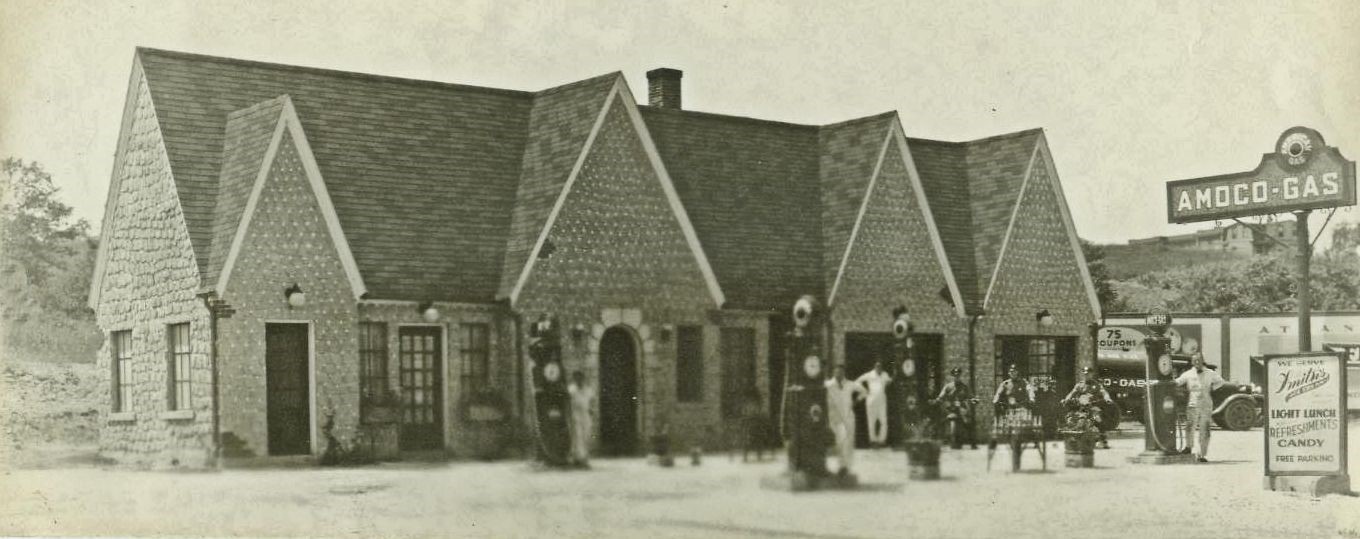The rise of the 1920’s car culture saw service stations spread in almost every locale in the nation. Most offered full service with mechanical work included.
Tires were not well made and were always in need of patching. Most rural roads in Clearfield County were little more than dirt paths and promised a rough ride.
The average price for a gallon of gasoline was 20 cents, which figures at approximately $2.60 in today’s dollars.
The Amoco station, shown in the photo, had a unique and professionally-done design. The goal was to attract customers. It also became a local architectural landmark.
According to a local newspaper report from Jan. 29, 1930, “One of the prettiest of the numerous pretty gasoline stations in this vicinity is going to be opened for business on Monday morning, when the DuBois Gasoline Station will commence operations at the streetcar crossing on South Brady Street.
“The gasoline station has been under construction for several months, and follows a French stucco design worked out by William Overdorf, architect. It is finished in bronze and green and presents a beautiful appearance, with its many steep sloping gables, covering an area 72×30 feet.
“Efficiency has not been forgotten in the interest of beauty, however, for in addition to the Amoco gas and oil products that will be handled at the station, it is also equipped for interior greasing and washing, as well as a rest room for ladies, while arrangements are completed for serving lunches during the summer season. The new station will be open for business this morning.”
Joseph Cherry originally operated a Pennzoil Gas Station at South Brady and Park streets, DuBois. He joined American Amoco Distributorship and built his new station at 930 S. Brady St. He operated the station until 1959. It was leased for several years and now stands empty near a Save A Lot Grocery store.



